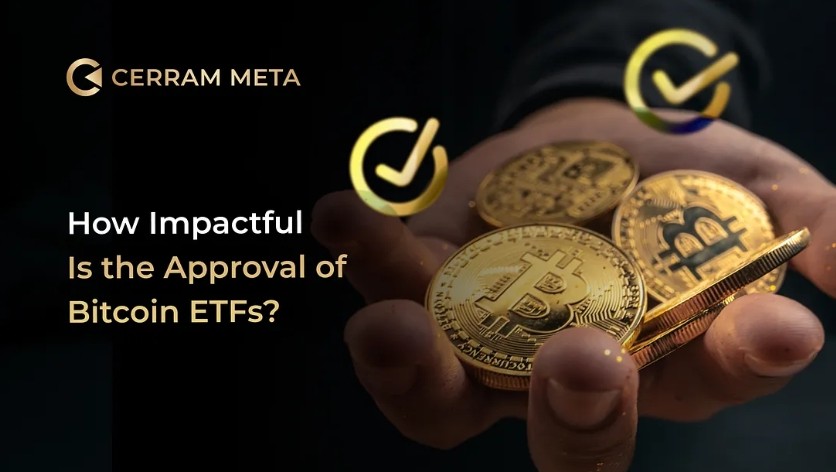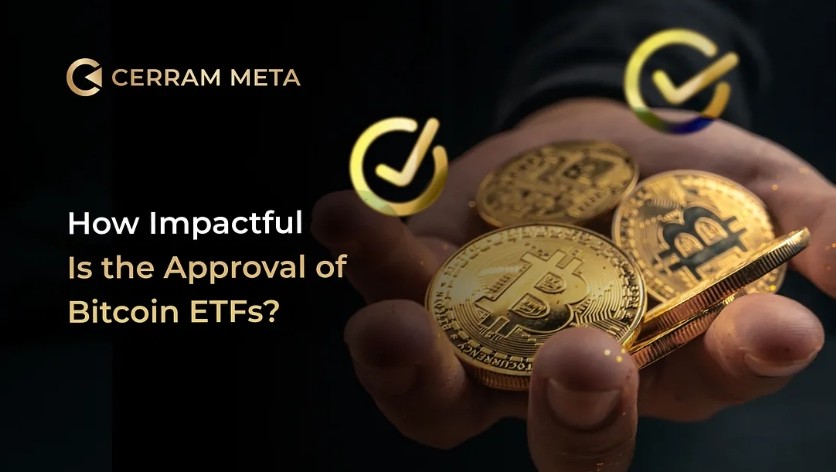Bitcoin ETFs and the Volatility of Digital Currency, Insights from Lawrence Fuller

Since its debut in October 2021, the United States’ first Bitcoin Futures Exchange-Traded Fund (ETF), ProShares Bitcoin Strategy ETF (BITO.US), has experienced a significant downturn, losing 40% of its value. In contrast, during the same period, the price of gold has risen by over 13%.
Lawrence Fuller, the head of The Portfolio Architect, was quick to give BITO a “sell” rating upon its launch. Fuller expressed a preference for gold as a more reliable store of value. His prediction seems remarkably prescient more than two years later, as BITO has plummeted by 40% while gold has concurrently appreciated.
Bitcoin ETF’s Struggle Since Launch
The recent introduction of the first batch of Bitcoin spot ETFs in the U.S., approved by the Securities and Exchange Commission (SEC), was met with much fanfare. There was an optimistic market expectation that these new products would allow investors and financial advisors to invest directly in Bitcoin, potentially benefiting its price in the mid to long term.
However, the immediate market reaction was contrary to expectations. Fuller noted that after peaking at over $49,000 on its first trading day, Bitcoin’s value dropped below $42,000, behaving like a tech stock that failed to meet profit expectations. However, the crucial difference, as Fuller pointed out, is that tech stocks represent companies with earnings, assets, and inherent value, which Bitcoin lacks.
The Limited Supply Argument and Value Storage
Proponents of Bitcoin argue that the digital currency can serve as an inflation hedge and a store of value, potentially improving the risk-adjusted performance of diversified portfolios. Fuller, however, disagrees. Over the past two years, he has not seen Bitcoin exhibit any of these characteristics. Therefore, he reiterates his “sell” rating on Bitcoin. Despite a recent surge in Bitcoin’s price due to optimistic expectations about the approval of Bitcoin spot ETFs, Fuller remains skeptical.
Fuller also challenges the claim that Bitcoin’s value lies in its limited supply, arguing that the limited supply of many items does not justify a value exceeding $49,000. He questions the logic of considering an asset that can lose 10% of its value in a day or half its value in a year as a viable store of value.
A Speculative Bubble Rather or a Solid Investment?
In a world where real yields are negative, Bitcoin spot ETFs face less competition than anticipated. Bonds are unattractive, but with money market returns exceeding 5%, digital currencies face stiff competition. Fuller believes that over time, the popularity of Bitcoin spot ETFs will wane.
Fuller views Bitcoin as lacking a definitive intrinsic value. Its appreciation depends on an increasing number of investors joining the frenzy, reminiscent of the Tulip Mania of the 17th century in the Netherlands. This speculative bubble famously led to financial ruin for many. Fuller intends to continue steering clear of Bitcoin, favoring more traditional investment options.
Regards,
Cerram Meta
交易商排行
更多- 监管中EXNESS10-15年 | 英国监管 | 塞浦路斯监管 | 南非监管92.42
- 监管中FXTM 富拓10-15年 |塞浦路斯监管 | 英国监管 | 毛里求斯监管88.26
- 监管中axi15-20年 | 澳大利亚监管 | 英国监管 | 新西兰监管79.20
- 监管中GoldenGroup高地集团澳大利亚| 5-10年85.87
- 监管中Moneta Markets亿汇澳大利亚| 2-5年| 零售外汇牌照82.07
- 监管中GTCFX10-15年 | 阿联酋监管 | 毛里求斯监管 | 瓦努阿图监管60.90
- 监管中VSTAR塞浦路斯监管| 直通牌照(STP)80.00
- 监管中IC Markets10-15年 | 澳大利亚监管 | 塞浦路斯监管91.81
- 监管中金点国际集团 GD International Group澳大利亚| 1-2年86.64
- 监管中CPT Markets Limited5-10年 | 英国监管 | 伯利兹监管91.56

